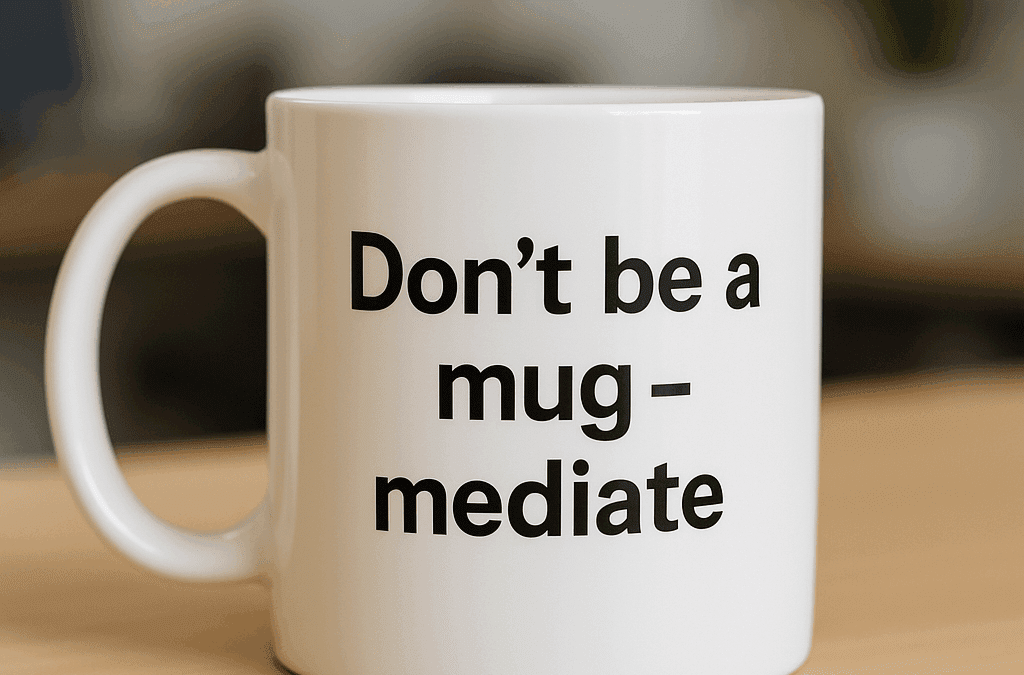Mug Wars at Work: How Workplace Mediation Could Defuse Everyday Conflicts

Based on reporting by Jonathan Ames, Legal Editor, The Times, May 28, 2025.
In a recent case that shines an amusing — yet revealing — light on office dynamics, an employment tribunal has ruled that accusing colleagues of mug theft can stir up resentment in the workplace.
The case involved Adeel Habib, a Currys employee working in Poole, Dorset, who became “greatly upset” when his favorite mug disappeared from the communal kitchen. Habib, convinced that his colleagues had stolen it, voiced confrontational accusations — and then claimed he was subsequently “cold shouldered” because of his race. The tribunal, however, found that any resentment toward Habib arose not from discrimination but from his “out of proportion” reaction and confrontational approach.
While this headline-grabbing case might seem trivial on the surface, it highlights deeper truths about workplace conflict. Minor misunderstandings over personal items, shared spaces, or perceived slights can easily escalate when emotions run high. Left unaddressed, these tensions can fester, harming relationships, team cohesion, and ultimately productivity.
This is precisely where workplace mediation comes in.
Why Mediation Matters in the Workplace
Mediation offers a confidential, non-judgmental space for colleagues to air grievances, clarify misunderstandings, and rebuild trust. Rather than turning to formal grievance procedures or, worse, letting tensions simmer unchecked, mediation allows parties to:
✅ Understand each other’s perspectives — often, conflicts stem from miscommunication rather than malicious intent.
✅ Express feelings in a controlled environment — allowing both sides to feel heard without escalation.
✅ Explore solutions collaboratively — with a trained mediator facilitating, parties can often craft their own solutions, which are more likely to stick.
✅ Preserve working relationships — crucial in any team-based environment where ongoing cooperation is required.
In the Currys mug case, imagine if mediation had been offered early:
- Habib could have shared how upset he was over losing his personal item without jumping to accusations.
- His colleagues could have explained the informal “communal mug” culture of the office, perhaps even helping locate or replace the missing cup.
- The team could have established clearer shared kitchen etiquette going forward.
The cost of not mediating? Escalated grievances, formal HR investigations, or even costly tribunal proceedings — all over a situation that mediation might have resolved within hours.
Everyday Disputes Deserve Early Attention
While some might laugh at the idea of mediating over a missing mug, research consistently shows that small, everyday frustrations are often the spark for larger workplace breakdowns. It’s the perceived injustices, the feeling of not being respected or understood, that erode workplace morale.
Employers who proactively offer mediation signal to their teams that they value open communication and respect. Instead of allowing small issues to escalate into formal disputes — or worse, discrimination claims — mediation keeps matters in perspective and maintains a positive working culture.
Final Thoughts
As the tribunal judge in this case concluded, workplace confrontations over minor issues are likely to breed resentment — not resolution. But by using mediation as a tool, organisations can address these tensions constructively, preserving both harmony and productivity.
For more on this story, see Jonathan Ames’ full report in The Times, May 28, 2025.

